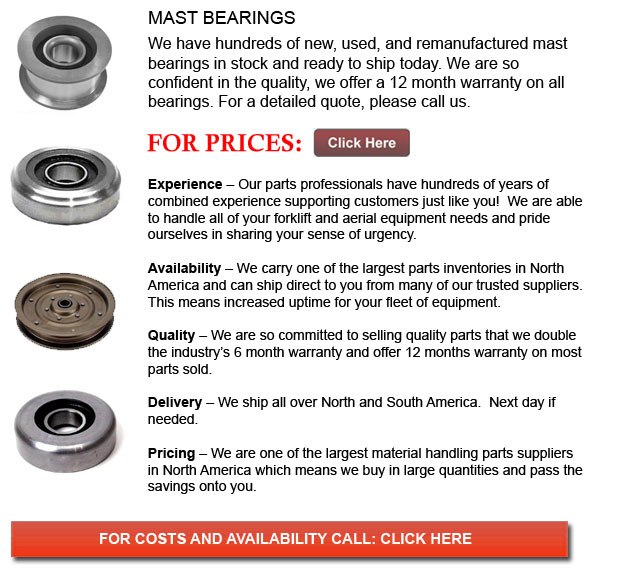
Mast Bearing - A bearing enables better motion among at least 2 components, usually in a linear or rotational procession. They can be defined in correlation to the flow of applied cargo the could take and in accordance to the nature of their operation
Plain bearings are really commonly utilized. They use surfaces in rubbing contact, usually with a lubricant such as graphite or oil. Plain bearings may or may not be considered a discrete gadget. A plain bearing may comprise a planar surface which bears another, and in this particular instance will be defined as not a discrete tool. It could have nothing more than the bearing exterior of a hole along with a shaft passing through it. A semi-discrete instance will be a layer of bearing metal fused to the substrate, whereas in the form of a separable sleeve, it will be a discrete device. Maintaining the proper lubrication allows plain bearings to provide acceptable friction and accuracy at minimal cost.
There are different bearings which could help better and develop effectiveness, reliability and accuracy. In numerous uses, a more suitable and exact bearing can better operation speed, service intervals and weight size, therefore lowering the whole costs of using and purchasing equipment.
Bearings will differ in materials, shape, application and needed lubrication. For example, a rolling-element bearing will make use of spheres or drums among the components to be able to limit friction. Less friction gives tighter tolerances and higher precision than plain bearings, and less wear extends machine accuracy.
Plain bearings could be constructed of metal or plastic, depending on the load or how dirty or corrosive the environment is. The lubricants that are used may have considerable effects on the lifespan and friction on the bearing. For example, a bearing may be run without whatever lubricant if constant lubrication is not an option for the reason that the lubricants can be a magnet for dirt which damages the bearings or device. Or a lubricant can better bearing friction but in the food processing business, it could require being lubricated by an inferior, yet food-safe lube so as to avoid food contamination and ensure health safety.
Nearly all bearings in high-cycle applications need some lubrication and cleaning. They can need periodic adjustment to be able to minimize the effects of wear. Some bearings can need irregular maintenance to be able to prevent premature failure, although fluid or magnetic bearings could require little maintenance.
Extending bearing life is usually done if the bearing is kept well-lubricated and clean, even if, several kinds of utilization make consistent maintenance a hard job. Bearings situated in a conveyor of a rock crusher for instance, are constantly exposed to abrasive particles. Regular cleaning is of little use for the reason that the cleaning operation is pricey and the bearing becomes contaminated once more once the conveyor continues operation.
![]() Click to Download the pdf
Click to Download the pdf
Forklift Parts
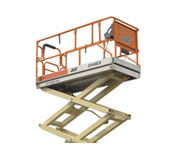
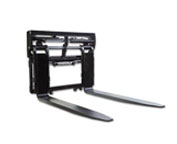
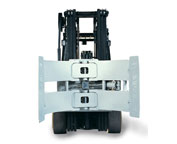
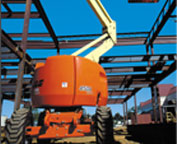
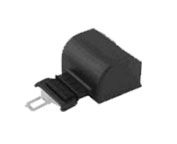
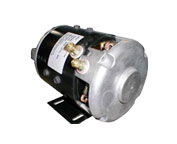
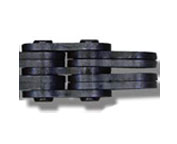
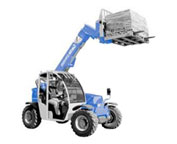
Lift Parts Express
TOLL FREE: 1-888-695-7994
forkliftpartskentucky.com
Email Us
About Us


